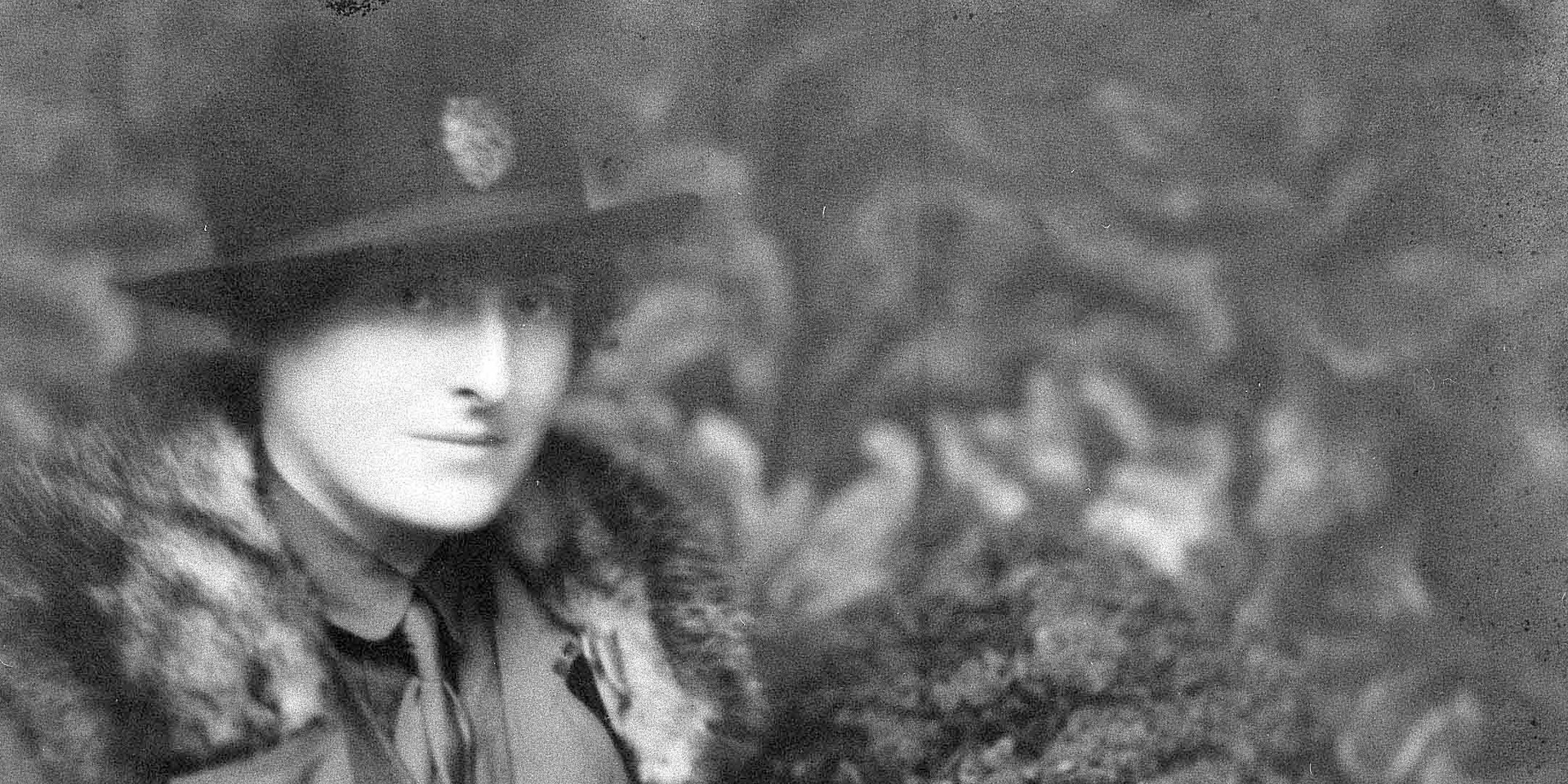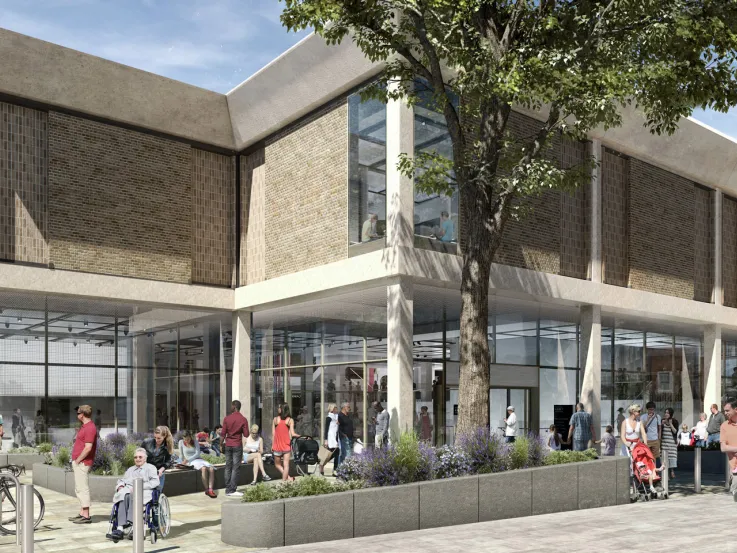Britain’s first military dame’s correspondence published
Today the National Army Museum is publishing fascinating insights into the early role of British women in combat on its website. Key items of correspondence and clippings collected by Dame Florence Simpson, Chief Controller of the Women’s Army Auxiliary Corps (WAAC) demonstrate the important role women played in supporting the war effort in 1917. Something which is particularly poignant with the recent decision to allow female soldiers into close combat roles in the British Army.
Born in Jersey in 1874, Simpson was to become instrumental in securing women’s employment in auxiliary roles in the army. By 1915 the British Army had become concerned about how to feed its troops. Food was a precious resource but was being wasted through poor preparation or being cooked so badly soldiers refused to eat it. Simpson was one of the first to volunteer with the Women’s Legion, a new voluntary women’s unit that cooked for the army and was run with military precision.
She was met by women with professional experience who looked down on the wealthy socialite. The ‘vision of radiant beauty’ was sent away to the labour exchange and expected to never be seen again. However, Simpson returned within the hour. Shortly after she was made Head Cook and went on to shape the Women’s Legion into a more business-like organisation.
1916 was a year that proved costly for the British Army with huge losses on the Somme. With many able-bodied men tied up in a variety of non-combat roles, the government began to investigate how women could fill these auxiliary jobs. Working to promote the organisation’s interests and persuade the army of the Women’s Legions capability for service abroad, Simpson starting planning a trip to the Western Front in November 1916.
On 4 December 1916 Simpson travelled to France. She investigated how women could work with the army and if the Women’s Legion could run officers’ clubs instead of the Army Service Corps. At the same time, one of the most senior officers in the British Army, Adjutant General Neville Macready, wrote to General Sir Douglas Haig asking his thoughts on women in military roles. Although originally hesitant, in 1917 Haig agreed to the employment of women.
On 20 December 1916 Macready wrote:
'The time has arrived when there should be some small central body in the War Office to deal with the whole question of women labour employed by the army in any capacity whatever. I see no reason why the women should not be organised in units and formations.'
In February 1917 the press announced that women were heading to the Western Front. The WAAC was formally founded in July 1917 and Simpson brought her 7,000 cooks of the Women’s Legion under its management and became the controller of recruiting. In February 1918 she was appointed Chief Controller of the WAAC and in 1919 became the first military Dame for her wartime services.
Rebecca Newell, Collections Development and Review Curator, said:
'Women have supported and served in armies for longer than most people think. Simpson’s part in securing women’s employment in the army was the start of 100 years of debate about the capabilities and reality of women in the armed forces. The culmination of which is the recent lifting of the ban on women serving in combat roles in the British Army.'
In 2017 the National Army Museum will explore the changing role of women in the army with talks, debates and a pop up. Through these events the museum will uncover 100 years of debate - from allowing women in the army during the First World War, to their full integration during the 1990s and, this year, the ban on women in combat roles being lifted.
Notes for editors
For more information, please contact the National Army Museum press office at pr@nam.ac.uk or 020 7881 2433.
Dame Florence Simpson
Florence Edith Victoria Simpson, nee Way (1874-1956), was born in St Peters, Jersey on 9 October 1874, one of five children. During her childhood she lived in Southsea, Hampshire.
On 3 December 1895, aged 21, she married her first husband Lieutenant Henry Burleigh Leach and took his surname. Leach was an officer in the Northumberland Fusiliers an Simpson followed him to many of his military postings, living with him in Gibraltar between 1905 and 1910. On their return to England they moved to Gillingham, Kent.
In 1920 Simpson retired from the Queen Mary Army Auxiliary Corps (as the WAAC was renamed in honour of their patron in April 1918), the same year she and Leach divorced. In 1922 she remarried Ernest Percy Simpson, who died three years later in 1925. Simpson, however, remained close to her step-daughters and lived with them in South Africa.
In 1956 she became seriously ill, moving to a clinic in Arleshiem, Switzerland where she died aged 81, on 5 September 1956. Florence’s obituary stated that 'Mo one who had known her can forget her personal charm, her exceptional good looks and her graceful bearing.'
National Army Museum
The National Army Museum is the leading authority on the history of the British Army. Founded in 1960 by Royal Charter and established for the purpose of collecting, preserving and exhibiting objects and records relating to the Land Forces of the British Crown it is a museum that moves, inspires, challenges, educates and entertains. The Museum tells the story of the British Army, the personal experiences of the soldiers who have served and connects the British public and its Army demonstrating how the role of the Army and its actions are still relevant today.
Heritage Lottery Fund
Using money raised through the National Lottery, the Heritage Lottery Fund (HLF) aims to make a lasting difference for heritage, people and communities across the UK and help build a resilient heritage economy. HLF has supported 36,000 projects with £6bn across the UK.
For more information, please contact Katie Owen, HLF press office, on tel: (020) 7591 6036 out of hours mobile: 07973 613820.


